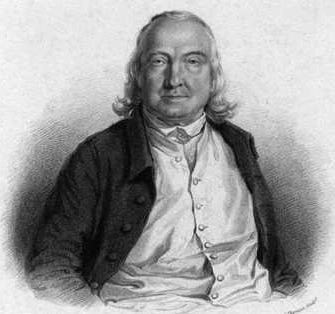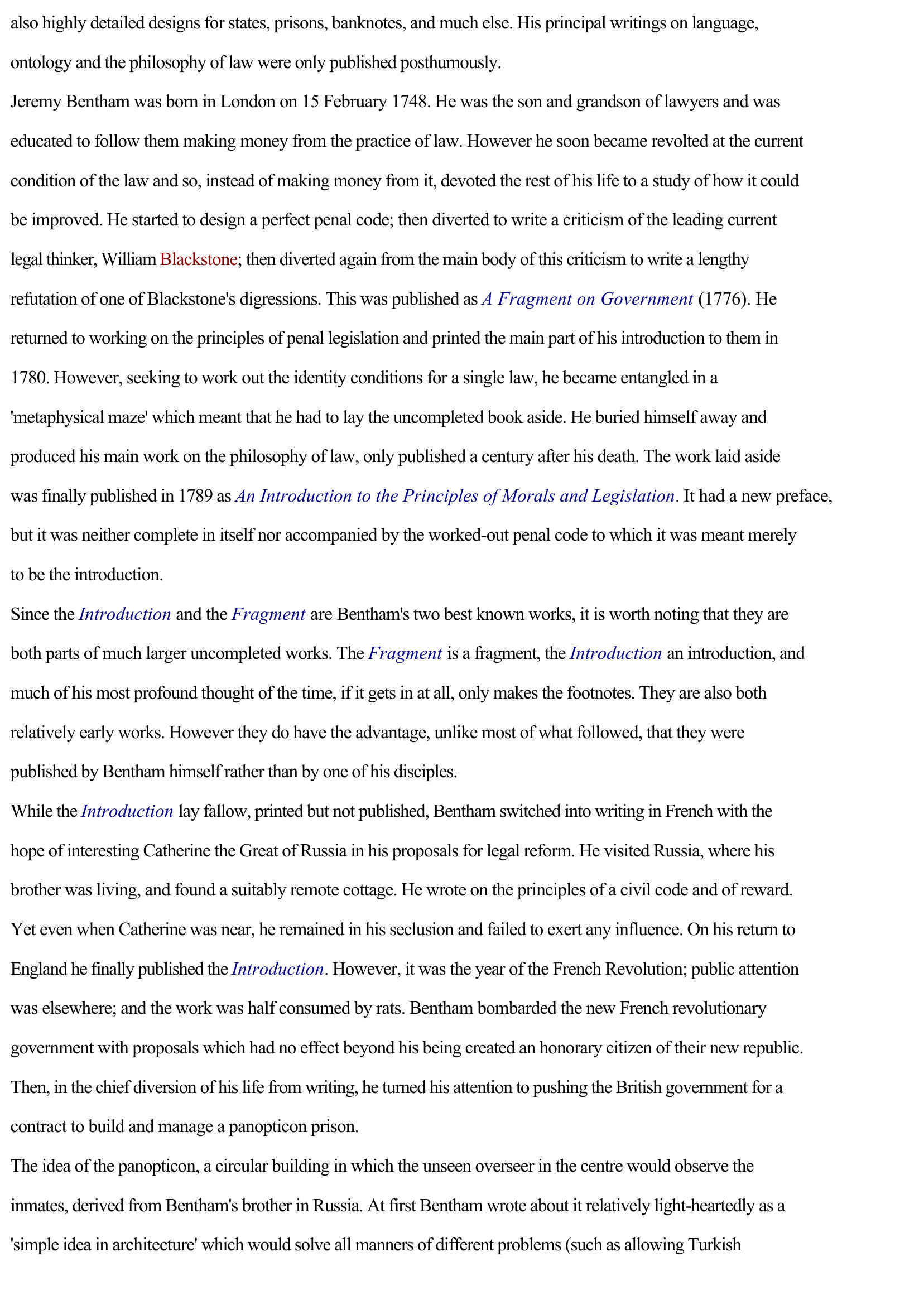Bentham, Jeremy
Publié le 22/02/2012

Extrait du document


«
also highly detailed designs for states, prisons, banknotes, and much else.
His principal writings on language,
ontology and the philosophy of law were only published posthumously.
Jeremy Bentham was born in London on 15 February 1748.
He was the son and grandson of lawyers and was
educated to follow them making money from the practice of law.
However he soon became revolted at the current
condition of the law and so, instead of making money from it, devoted the rest of his life to a study of how it could
be improved.
He started to design a perfect penal code; then diverted to write a criticism of the leading current
legal thinker, William Blackstone ; then diverted again from the main body of this criticism to write a lengthy
refutation of one of Blackstone's digressions.
This was published as A Fragment on Government (1776).
He
returned to working on the principles of penal legislation and printed the main part of his introduction to them in
1780.
However, seeking to work out the identity conditions for a single law, he became entangled in a
'metaphysical maze' which meant that he had to lay the uncompleted book aside.
He buried himself away and
produced his main work on the philosophy of law, only published a century after his death.
The work laid aside
was finally published in 1789 as An Introduction to the Principles of Morals and Legislation .
It had a new preface,
but it was neither complete in itself nor accompanied by the worked-out penal code to which it was meant merely
to be the introduction.
Since the Introduction and the Fragment are Bentham's two best known works, it is worth noting that they are
both parts of much larger uncompleted works.
The Fragment is a fragment, the Introduction an introduction, and
much of his most profound thought of the time, if it gets in at all, only makes the footnotes.
They are also both
relatively early works.
However they do have the advantage, unlike most of what followed, that they were
published by Bentham himself rather than by one of his disciples.
While the Introduction lay fallow, printed but not published, Bentham switched into writing in French with the
hope of interesting Catherine the Great of Russia in his proposals for legal reform.
He visited Russia, where his
brother was living, and found a suitably remote cottage.
He wrote on the principles of a civil code and of reward.
Yet even when Catherine was near, he remained in his seclusion and failed to exert any influence.
On his return to
England he finally published the Introduction .
However, it was the year of the French Revolution; public attention
was elsewhere; and the work was half consumed by rats.
Bentham bombarded the new French revolutionary
government with proposals which had no effect beyond his being created an honorary citizen of their new republic.
Then, in the chief diversion of his life from writing, he turned his attention to pushing the British government for a
contract to build and manage a panopticon prison.
The idea of the panopticon, a circular building in which the unseen overseer in the centre would observe the
inmates, derived from Bentham's brother in Russia.
At first Bentham wrote about it relatively light-heartedly as a
'simple idea in architecture' which would solve all manners of different problems (such as allowing Turkish.
»
↓↓↓ APERÇU DU DOCUMENT ↓↓↓
Liens utiles
- INTRODUCTION AUX PRINCIPES DE LA MORALE ET DE LA LÉGISLATION, Jeremy Bentham
- LIVRE DES SOPHISMES de Jeremy Bentham
- Bentham, Jeremy (juriste).
- Jeremy Bentham 1748-1832 Né à Londres, est à l'origine du radicalisme anglais
- Bentham Jeremy, né à Londres, philosophe anglais.

































